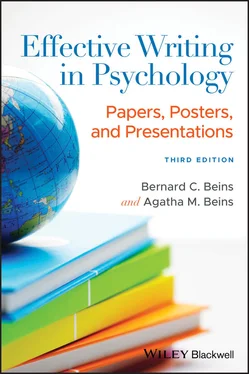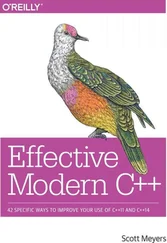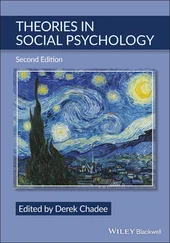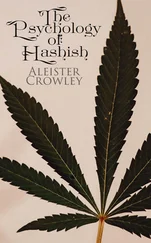Bernard C. Beins - Effective Writing in Psychology
Здесь есть возможность читать онлайн «Bernard C. Beins - Effective Writing in Psychology» — ознакомительный отрывок электронной книги совершенно бесплатно, а после прочтения отрывка купить полную версию. В некоторых случаях можно слушать аудио, скачать через торрент в формате fb2 и присутствует краткое содержание. Жанр: unrecognised, на английском языке. Описание произведения, (предисловие) а так же отзывы посетителей доступны на портале библиотеки ЛибКат.
- Название:Effective Writing in Psychology
- Автор:
- Жанр:
- Год:неизвестен
- ISBN:нет данных
- Рейтинг книги:3 / 5. Голосов: 1
-
Избранное:Добавить в избранное
- Отзывы:
-
Ваша оценка:
- 60
- 1
- 2
- 3
- 4
- 5
Effective Writing in Psychology: краткое содержание, описание и аннотация
Предлагаем к чтению аннотацию, описание, краткое содержание или предисловие (зависит от того, что написал сам автор книги «Effective Writing in Psychology»). Если вы не нашли необходимую информацию о книге — напишите в комментариях, мы постараемся отыскать её.
Effective Writing in Psychology: Papers, Posters, and Presentations
Effective Writing in Psychology's
Effective Writing in Psychology: Papers, Posters, and Presentations
Effective Writing in Psychology — читать онлайн ознакомительный отрывок
Ниже представлен текст книги, разбитый по страницам. Система сохранения места последней прочитанной страницы, позволяет с удобством читать онлайн бесплатно книгу «Effective Writing in Psychology», без необходимости каждый раз заново искать на чём Вы остановились. Поставьте закладку, и сможете в любой момент перейти на страницу, на которой закончили чтение.
Интервал:
Закладка:
Writing successfully is not easy. It requires knowledge of the topic we are addressing; judicious selection of the best words, phrases, and sentences; and editing and revising what we have composed. If there were a magical formula that we could use to generate good prose, everybody would succeed in communicating even complex and hard‐to‐understand ideas. If you have read the work of scientists, though, you will have discovered that, much of the time, scientific writing is dense and impenetrable. Many writers hide interesting concepts inside packages of dull prose.
On the other hand, people sometimes produce lively prose that may not convey the message accurately. Engaging, but deceptive, prose is no better (and may be worse) than accurate, incomprehensible writing.
Fortunately, there is the desirable middle ground that Sigmund Freud and Williams James occupied, where prose was stimulating, not sleep inducing. Those of us who do not initially fall into this category can learn to communicate effectively. The purpose of this book is to help you find the path to better communication. If you are motivated, you can work on the skills you need to get your point across meaningfully and accurately.
How Does Professional Writing Differ From Other Kinds of Writing?
If you are trying to write like a psychologist, your style will be unlike much of the writing that you have done in the past. When psychologists write professionally, they usually attempt to convey specific information with a great deal of precision, minimizing ambiguity and the possibility of misunderstanding. The adage to say what you mean and mean what you say is highly appropriate for technical writing. You want your reader to understand the points you believe are important, and you want the reader to know exactly what you intend to say.
In other forms of writing, the emphasis may be on crafting artistic prose. The writer attempts to impress the reader with both content and style. The words that Shakespeare wrote for Macbeth illustrate the point. Macbeth lamented that life “is a tale told by an idiot, full of sound and fury, signifying nothing.” These poetic words convey Macbeth's despair. However, Shakespeare's style would not be appropriate for a scientist because the style of science is to be straightforward and unambiguous so the reader does not have to puzzle through the words to find meaning in them.
Psychologists often receive training in how to write objective, scientific papers. Unfortunately, the writing style is often “bloodless” (Josselson & Lieblich, 1996 , p. 651), meaning that it is not particularly engaging. Sommer (2006) has encouraged psychologists to learn to write with color and style for lay audiences without sacrificing accuracy. But he also implied that the writing style in academic journals need not be dreary.
In scientific writing, we focus on the content of the message. The point is not to impress the reader with the prose, but to render the prose invisible while making the content foremost. This type of writing can be as difficult to do well as literary writing because you need to be concise without omitting important information; you need to choose your words carefully so they engage the reader without obscuring your point; you need to say enough to let your reader understand your message without being repetitive.
Another difference among the various types of writing is that, when we write scientifically or technically, we generally rely on a vocabulary specific to the topic at hand. Professionals understand this wording, but others are not likely to be as conversant with the terminology. This is one of the reasons that scientific writing has the reputation of being incomprehensible—you need to know the jargon. (The concepts are also complex and may be hard to understand, which does not help.) Actually, technical terms are helpful because they let us communicate complex ideas clearly in a few words, although if you do not know the meanings of the words, the prose is meaningless or, at best, difficult.
Using APA Style
A further difference between scientific or technical writing and less formal writing is that, in science, authors typically follow a specific format in preparing reports. In psychology, for instance, authors use guidelines that appear in the Publication Manual of the American Psychological Association (American Psychological Association [APA], 2020), commonly just called APA Style. (Some other disciplines, such as sociology, education, and nursing, also use APA style.) Research reports usually include six sections, as described in Table 1.1.
Table 1.1 Typical Sections in an APA‐Style Research Report
| Section of the report | What the section contains |
|---|---|
| Title page | The title of the paper, the names of authors, and the affiliations of the authors |
| Abstract | A brief overview of the entire project of about 150–250 words |
| Introduction | The background and logic of the study, including previous research that led to this project |
| Method | Minute details of how the study proceeded, including descriptions of participants, apparatus, and materials, and what researchers and participants actually did during the study |
| Results | A detailed statement of the statistics and other results of the study |
| Discussion | What the results tell us about thought and behavior |
| Reference | Where to find the work cited in the paper that relates to the present study |
Most of the time, if a writer submits to a journal editor a manuscript that deviates from an expected style, the editor is not likely to reject the manuscript as unsuitable for publication. Instead, editors work with authors so that the final version of the manuscript is consistent with APA style (Brewer, Scherzer, Van Raalte, Petitpas, & Andersen, 2001). However, editors have commented that deviations from APA style often accompany problems with the content of a manuscript. So if you create a manuscript that fails to follow appropriate style, a reader who is familiar with (and used to) APA style may assume that you paid as little attention to your ideas as you did to the way you expressed them. In the workplace, employers have expressed similar sentiments, that poor writing reflects poor thought (College Board, 2004).
According to the research of Brewer et al. (2001) on the use and the importance of APA style, writers are likely to depart from APA style in their presentation of research results and in citing references. So you should pay particular attention to these facets of your writing. If you write a paper in APA style that does not involve empirical research and data analysis, APA style can still apply. The structure of your paper is likely to have elements in common with the Introduction, Discussion, and Reference sections of a research paper, which we discuss in later chapters. Once you learn the basics of APA style, writing an effective paper might be easier than you anticipated because you will have a good sense of what belongs in a paper and where it goes.
As you write for a professional audience, keep in mind that readers are willing to be convinced with persuasive arguments, but you have to convince them. Scientific writing entails presenting a series of logical arguments that follow from one another. At the end, your good logic is going to make a believer out of your reader. If we are going to accept the process of science, it means that when a writer offers a logical argument that is supported by good data, we should be willing to accept that argument.
Making a Credible Argument
The difference between scientific writing and other writing has to do with the nature of how psychologists attempt to persuade readers. In everyday life, if you want you to change somebody's mind about something, there are several ways of doing it. One is to appeal to authority. That is, by quoting an expert (i.e., an authority), you can often convince people to believe you. After all, experts know more than others in their field of expertise. Unfortunately, experts can be wrong.
Читать дальшеИнтервал:
Закладка:
Похожие книги на «Effective Writing in Psychology»
Представляем Вашему вниманию похожие книги на «Effective Writing in Psychology» списком для выбора. Мы отобрали схожую по названию и смыслу литературу в надежде предоставить читателям больше вариантов отыскать новые, интересные, ещё непрочитанные произведения.
Обсуждение, отзывы о книге «Effective Writing in Psychology» и просто собственные мнения читателей. Оставьте ваши комментарии, напишите, что Вы думаете о произведении, его смысле или главных героях. Укажите что конкретно понравилось, а что нет, и почему Вы так считаете.












